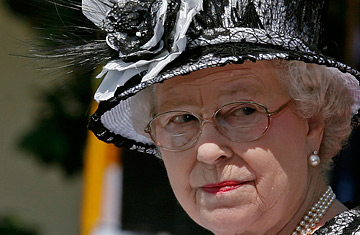
HRH Queen Elizabeth II participates in a ceremony on the South Lawn of the White House May 7, 2007 in Washington, DC.
Jan. 8
With the Metropolitan Police investigation completed, the British inquest into Diana's death resumes in London.
March 6
The British coroner, retired High Court judge Elizabeth Butler-Sloss, postpones the inquest until October after Mohamed Al Fayed requests an extension to prepare his case. Butler-Sloss had said she had not been presented "any shred of evidence" to back up Al Fayed's claims. The millionaire's lawyer begged to disagree.
April 24
Butler-Sloss announces her resignation from the inquest, saying that Lord Justice Scott Baker would eventually take over from her because she lacked experience in jury trials. Butler-Sloss made clear that the inquest would not need to start over and she would continue to handle the pre-Inquest proceedings until her successor came aboard.
May 16
A lawyer for Mohamed Al Fayed asks for the Queen to provide testimony. Al Fayed's team, which has already requested Prince Charles and the Duke of Edinburgh give evidence, wants the Queen to clarify a comment Burrell says she made to him about the "powers that may be at work" in regards to Diana's death. Butler-Sloss says such a request is unheard of and may be a "constitutional matter."
June 13
Lord Justice Scott Baker takes over from Butler-Sloss.
July 27
As part of the pre-inquest hearings, Lord Justice Scott Baker sets out a list of 20 "likely issues" to be brought up at the hearing. They range from Henri Paul's level of inebriation to the culpability of a Fiat Uno and the actions of the paparazzi as well as "whether the Princess of Wales was pregnant" and if "the Princess of Wales feared for her life." It also mentioned such minutiae as the theft of digital photographs — including shots from the accident scene — from the London home of Lionel Cherruault the night after the princess died.